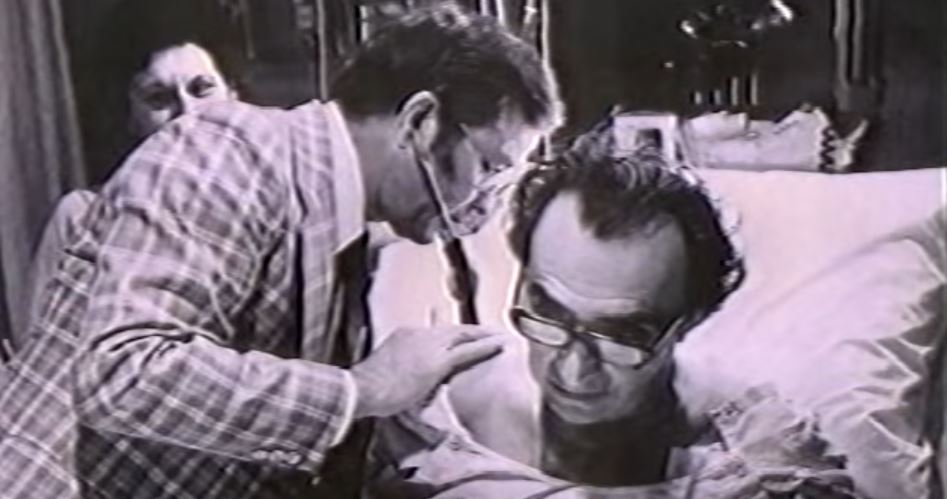When patients went to see W. Dudley Johnson he was often their last hope.
“He received patients who had three alternatives from other doctors who wouldn’t tackle their condition,” Dr. Gordon Lang, his friend and colleague, recently told The New York Times. “One was, ‘Go home and get your affairs in order.’ The other was, ‘Put your name on a cardiac transplant list.’ And the third was, “Go to Milwaukee and see Dr. Dudley Johnson.’”
In the late 1960s, Johnson had blazed a new trail by attempting a pioneering coronary artery surgery method. Instead of the conventional approach of removing clogged portions of an artery and grafting on a replacement patch of cardiac membrane, Johnson and his team sewed segments of veins from multiple arteries end to end and then stitched them directly into the aorta.

(Image credit: screengrab from Milwaukee Public Television video)
Johnson’s success silenced naysayers in the medical community and helped usher in a new era of bypass surgeries.
But that was just one of the highlights in Johnson’s storied career, which included other landmarks such as:
- Aiding surgery by stopping the patient’s heart and slowing their metabolism by cooling and circulating blood through a heart-lung machine.
- Collaborating on a heart transplant surgery in 1968 on a patient who went on to live another nine years — a record at the time.
- Prescribing allopurinol to boost the exercise capability of cardiac patients (even though it was normally prescribed to inhibit uric acid production).
- Winning the World Health Day award in 1992 for his contribution to preventing heart disease.
Despite the accolades and success, Johnson was reluctant to become a surgeon. Born in Madison, Wisconsin, Johnson went to medical school at the University of Illinois and completed his internship in Chicago. At the time he wanted to be a general practitioner. According to the NYTimes, he once recalled, “I disliked surgeons and their pompous attitudes.”
But he went on to perform more than 8,500 heart bypass surgeries over four decades.
According to the Milwaukee Journal Sentinel, Johnson typically performed two or three surgeries a day with classical music playing in the OR — often working until 3:00 a.m. and then crashing on a couch in the hospital instead of going home to sleep.
He was known for treating his patients with dignity and emphasizing prevention and a healthy lifestyle over surgery.
Earlier this month, Johnson attended a monthly meeting at the Milwaukee Academy of Medicine and right afterward suffered a stroke. A few days later he died in hospice at the age of 86.




